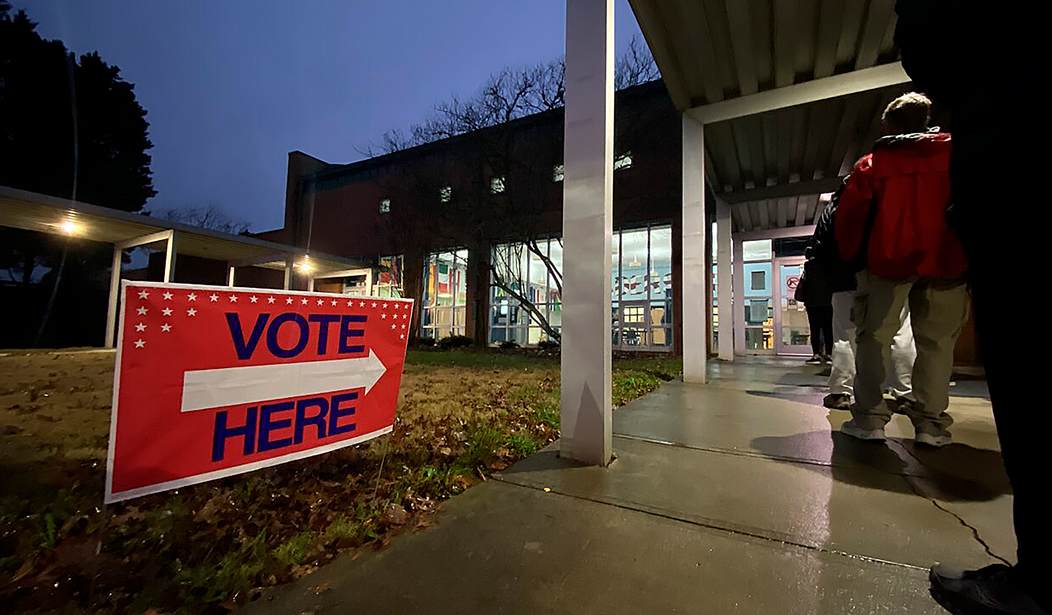A new Rasmussen Reports survey finds that, among voters who used absentee or mail-in ballots in November 2020, eight percent said they were paid or rewarded for voting. Both Biden and Trump voters claim they got paid for voting, but it was more common among self-identified Biden voters. With vote harvesting, whereby political operatives can now pick up ballots from voters and see how votes were cast. When a ballot is no longer secret, vote buying becomes possible.
Virtually all of the mainstream media ignored the survey, but a headline in the Washington Post accused it of “breaking new ground in ridiculous 2020 denialism.” Despite the media claims that mail-in ballots are secure and that there are no real problems with vote fraud, Americans are much more skeptical. A November 2022 survey found that 52% of likely voters believed mail-in voting made cheating in elections easier. Only 30% thought mail-in voting didn’t make much difference, and just 14% said that it would make cheating harder.
So, what do these results mean? 3.24% of Biden voters say they were paid to vote and 1.38% of Trump voters said the same, a difference of more than a factor of two. Compare that difference of 1.86 percentage points. Assuming that 1. 86 percentage point difference is correct, Biden won the four closest states by much less than that: Georgia (Biden won by 0.2 percentage points), Arizona (0.6 percentage points), Wisconsin (0.6 percentage points), and Pennsylvania (0.7 percentage points). Trump’s narrowest victory was in North Carolina, where he won by 1.4 percentage points.
If Trump had won Arizona, Pennsylvania, and either Georgia or Wisconsin, he would have won the election.
Recommended
government commissions and the media have long discussed the problems with absentee ballots, which are significant, but these ballots at least have to be requested. With mail-in ballots, everyone gets ballots automatically mailed to them.
“Absentee ballots remain the largest source of potential voter fraud,” concluded a report by the bipartisan 2005 Commission on Federal Election Reform, chaired by former President Jimmy Carter and former Secretary of State James Baker III. Vote buying was a key concern of the commission: “Vote buying schemes are far more difficult to detect when citizens vote by mail.”
“Absentee ballots also make it much easier to buy and sell votes,” warned journalist Adam Lipton in a 2012 New York Times article. “In recent years, courts have invalidated mayoral elections in Illinois and Indiana because of fraudulent absentee ballots.”
Concerns about vote-buying have a long history in the U.S. They helped drive the move to the secret ballot, which U.S. states adopted between 1888 and 1950. Secret ballots made it harder for vote buyers to monitor which candidates people actually voted for. Vote-buying had been pervasive; my research with Larry Kenny at the University of Florida has found that voter turnout fell by about 8% to 12% after states adopted the secret ballot.
In Europe, 35 of 47 countries entirely ban absentee voting for citizens who reside domestically. Another ten countries require people to collect their absentee ballots in-person and to present photo ID. Six of those ten countries further limit absentee voting to those who are hospitalized or in the military, and require third-party verification plus photo voter ID.
Unlike in the United States, COVID lockdowns brought about few exceptions to Europe’s stringent standards. Poland allowed mail-in ballots for everyone last year as a one-time measure, as did two cities in Russia. But Poland’s plan played out so poorly that it dissuaded other countries from following suit.
Some European countries learned the hard way about the problems with absentee ballots. Up until 1975, France had loose absentee voting rules. But after discovering massive vote fraud on the island of Corsica — with hundreds of thousands of votes in the names of deceased people and even larger-scale vote-buying operations — France banned absentee voting altogether.
Of course, you can find recent elections in the U.S. that have been affected by vote fraud. Video evidence showed a woman stuffing absentee ballots into ballot boxes, and a Connecticut state judge ordered a new 2022 Democratic mayoral primary in the state’s most populous city.
Mail-in voting is a throwback to the dark old days of vote-buying and fraud. many countries, from Norway to Mexico, don’t allow absentee ballots for citizens living in their country. If the U.S. can implement a more trustworthy system, voters will regain some of the faith they have lost in our elections.
Lott is the president of the Crime Prevention Research Center and the author most recently of “Gun Control Myths.”

























Join the conversation as a VIP Member